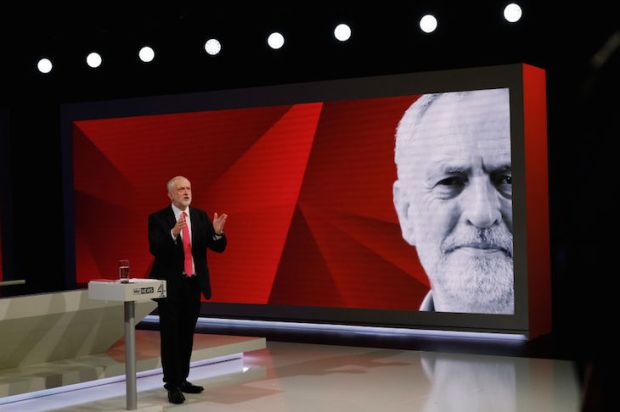If you’re aiming to refute the suggestion that you can’t comprehend the difference between mob rule and the rule of law, then I suspect it’s probably a bad idea to raise a mob and lead it marching on a law court. Just my little hunch. Yet here come Nigel Farage and his piggybank Arron (Piggy) Banks with a plan to do just that. When the Supreme Court meets next month, the chaps behind Leave.EU aim to lead a march of 100,000 people to Parliament Square, to remind the chaps in wigs what Britain jolly well voted for. As if that had anything to do with anything at all.
So far, criticism of the High Court judgment — which the Supreme Court will affirm or overrule — has come in three distinct varieties. We have had the valid, the dim and the frankly sinister. In the first category sits anybody who simply wonders whether the court has got it wrong in claiming that the law requires a parliamentary vote on triggering Article 50. Perfectly reasonable, that. Disputing the independence of judges may nudge you towards being a conspiracy theorist, but disputing their infallibility most certainly does not. I’ve read arguments on both sides, and what the hell do I know? This is what appeals are for. We’ll see.
Then comes the dim, which I’m afraid includes the likes of Andrew Murrison, the Conservative MP for South West Wiltshire. ‘If judges can frustrate a referendum outcome,’ he tweeted last week, ‘why not the result of a general election that isn’t to their liking?’ Thereby in only 114 characters displaying that he had either failed to understand what the judgment had meant, or what the referendum had meant, or perhaps what courts are for, or possibly all three. There’s a lot of this stuff around, and life is simply too short not to ignore most of it. This guy, though, used to be a government minister. What a wazzock.
And so to the sinister, by which I mean the likes of Farage, whose fury at the High Court judges would almost be less alarming if it were cynical than it is because it seems sincere. Funny the way people give themselves away when they get properly cross. Speaking to Andrew Marr on the telly last weekend, Ukip’s erstwhile leader (and perhaps current leader, but who ever really knows?) tilted not just at these particular judges but at the very concept of judicial independence itself. Noting that one of them, Lord Thomas, had co-founded the European Law Institute, he alleged intrinsic, inevitable bias. ‘If somebody is directly, politically conflicted by their past,’ he chortled, ‘they should not sit in judgment!’
At first, it sounded like a real gotcha gaffe. ‘By that logic,’ I thought immediately, ‘he’s saying that he himself couldn’t ever be impartial either!’ And then suddenly I realised that this was exactly what he meant to say. Suzanne Evans, the Ukip leadership candidate, who within a day was declaring that judges should be ‘brought under democratic control’, clearly thinks much the same. These people truly believe that judges cannot be impartial. That it simply isn’t possible, nor even credible as an aim. They believe this because they themselves, in the same situation, would not make even the slightest effort to be impartial, even if that was what their job and their oath required.
This is also why they are opposed to the idea of a parliamentary vote on Article 50. It is because they cannot comprehend that a bunch of MPs who once voted Remain might henceforth regard it as their democratic — albeit reluctant — duty to trigger our departure from the EU. They expect a blithe disregard for democracy because, if the shoe were on the other foot, a blithe disregard for democracy is precisely what they would have. All that lofty talk about parliamentary sovereignty, about the glories of the British rule of law, about the will of the people, which must be obeyed — well, it was all arrant bullshit, wasn’t it? They only believe in that sort of stuff when it agrees with what they were going to do anyway.
Not everybody. I’m not saying that. I’m wholly prepared to believe that the vast majority of those who campaigned for Leave truly do want to live in a country where a British executive is constrained by British law, as set down by the acts of a democratically elected British parliament, and so on and so forth, and all those other phrases that one can only now hear, for some reason, in the somewhat absurd tones of Jacob Rees-Mogg. Only this is the beast they brought along for the ride and which, in retrospect, they maybe shouldn’t have allowed to carry the suitcases. A beast which doesn’t just hate Brussels but also hates everybody in charge of everything. Including Westminster and the courts and the rule of law itself. And which has hit upon the trick, worst of all, of pretending it hates all of these things on behalf of everybody else.
I don’t much like the idea of venerating judges. They invariably used to be lawyers, after all. Nor am I wild about venerating Westminster or Brussels. I would take rule by all three, though, any day, over rule by the sort of angry, unrepresentative mob that finds itself marching on a court at the behest of a fascist and a smirking millionaire. It would be too easy for bitter old Remainers such as me to shrug and point fingers and tell you Leavers that this, this, this is the Britain you voted for. Only, I don’t think it is, really, is it? In fact, it doesn’t feel very British at all.
Please. I’m begging you. Shut these people out. Don’t let them set the tone. Take back control.
Got something to add? Join the discussion and comment below.
Get 10 issues for just $10
Subscribe to The Spectator Australia today for the next 10 magazine issues, plus full online access, for just $10.















Comments
Don't miss out
Join the conversation with other Spectator Australia readers. Subscribe to leave a comment.
SUBSCRIBEAlready a subscriber? Log in